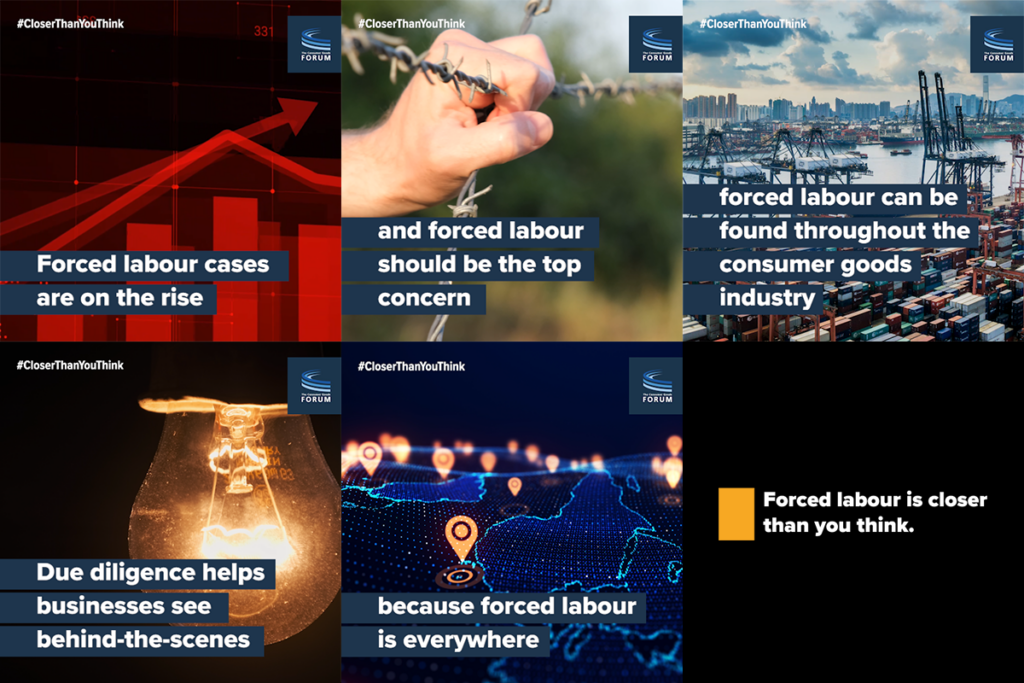Forced labour is everywhere – and it’s on the rise. Recent reports from the International Labour Organization (ILO) estimate 28 million people were in situations of forced labour in 2021, a 12 percent increase from 2016. The majority of these cases are found in the private sector, particularly in central operations of the consumer goods industry such as manufacturing and agriculture.
This trend is unacceptable, and the way forward is clear: consumer goods companies must be key leaders in global efforts against forced labour in their own operations and supply chains.
To mark International Day of Human Rights, The Consumer Goods Forum (CGF) Human Rights Coalition – a CEO-led initiative of the world’s largest consumer goods manufacturers and retailers taking collective action against forced labour – is urging all businesses worldwide to take on this challenge and prioritise forced labour in their human rights due diligence. There’s no denying that forced labour is the most salient human rights impact in our industry. Without tackling forced labour, we won’t be able to ensure our workers are free from discrimination, violence, or other human rights abuses – driving systemic change and addressing root causes of injustice is key to creating sustainable supply chains.
With our new campaign – #CloserThanYouThink – we seek to increase awareness of the prevalence of forced labour risks in the consumer goods industry, the value for businesses in taking action, and – importantly – offer practical solutions for how to effectively remedy actual and potential impacts.
I encourage businesses to use our #CloserThanYouThink video series to help raise awareness of what forced labour looks like, where it exists, and in which operations and tiers within the supply chain can workers be at a higher risk for forced labour.
While businesses have made progress in ensuring decent working conditions through operationalising due diligence, the ongoing impacts of migration, the COVID-19 pandemic, and conflicts are increasing forced labour globally. Businesses must therefore continue to improve their human rights due diligence to ensure no workers are at risk for this injustice.
On behalf of the HRC, I urge all businesses throughout the consumer goods industry to look closely at their operations and supply chains and use robust due diligence systems – like the ones developed by our Coalition – to effectively identify, prevent, and remedy forced labour risks. Forced labour truly is everywhere, and often, it’s #CloserThanYouThink.

